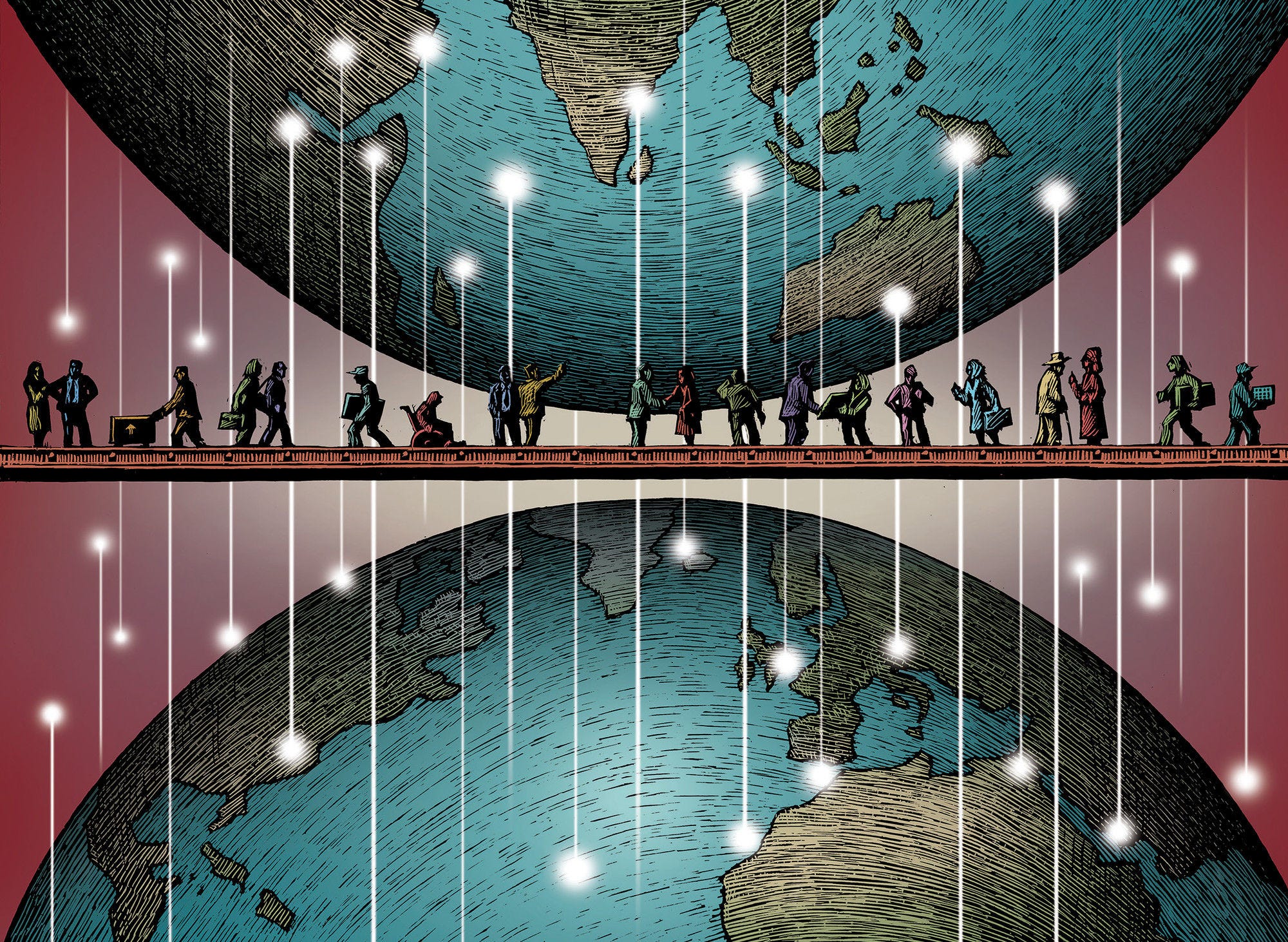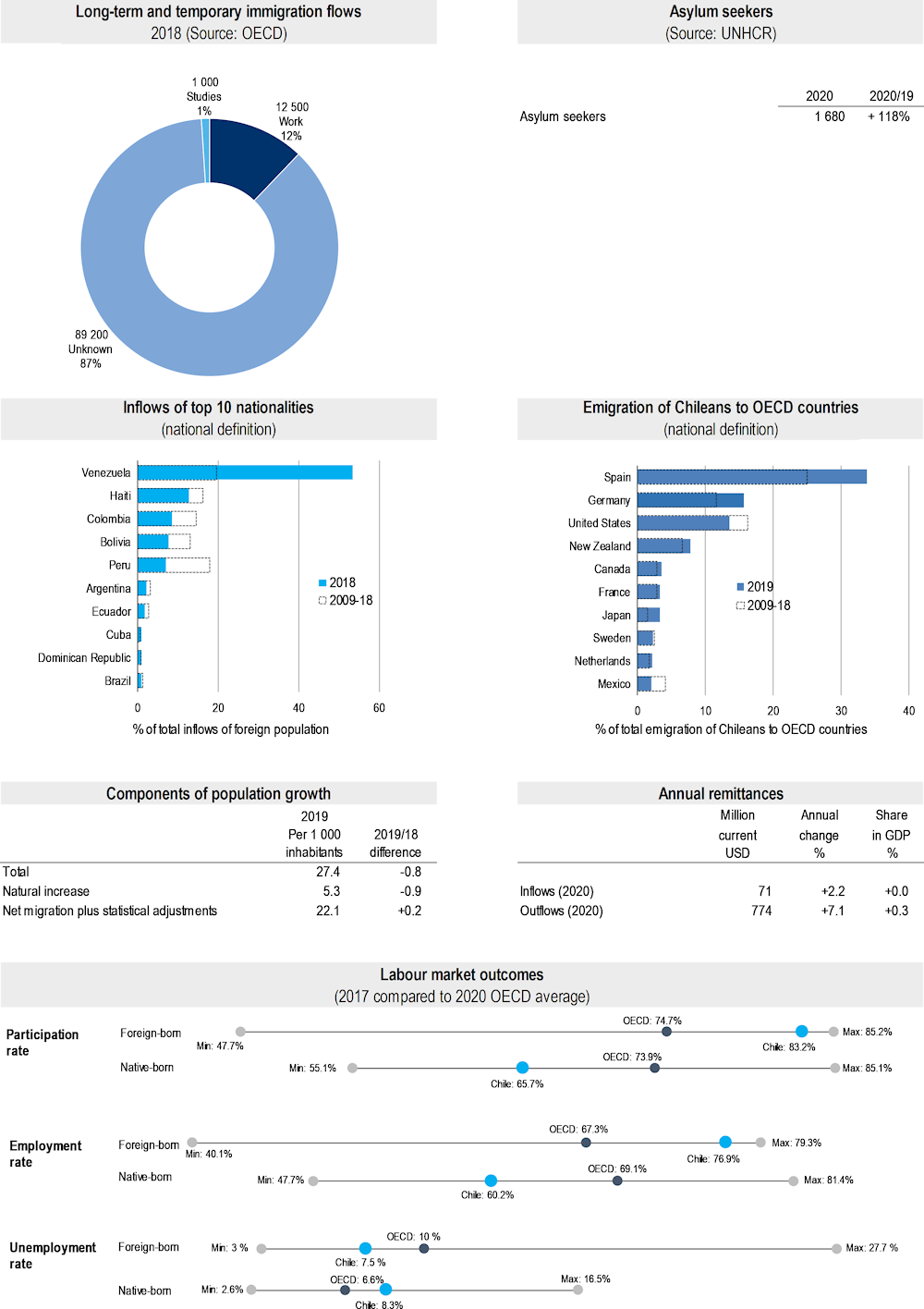Venezuela, Haiti and Colombia were the top three nationalities of newcomers in 2019. Among the top 15 countries of origin, Venezuela registered the strongest increase (13 000) and Haiti the largest decrease (‑76 000) in flows to Chile compared to the previous year.
In 2020, the number of first asylum applicants increased by 100%, to reach around 1 700. The majority of applicants came from Colombia (700), Cuba (500) and Venezuela (400). The largest increase since 2019 concerned nationals of Colombia (400) and the largest decrease nationals of Dominican Republic (‑10). Of the 1 900 decisions taken in 2020, 0.3% were positive.
Emigration of Chileans to OECD countries increased by 14% in 2019, to 12 000. Approximately 36% of this group migrated to Spain, 14% to the United States and 11% to Germany.
On 10 December 2020, the Chilean Congress approved a law that reforms the immigration system. From the publication of the Law in April 2021, the Ministry of Interior has 12 months to publish implementing immigration regularisations.
According to the new law, foreign nationals who entered Chile as tourists are no longer able to change to residence status in-country, with the exception of family reunification.
In order to perform short-term work, foreign nationals need to apply for a Special Work Authorisation through a digital process abroad or in-country. This authorisation replaces the current Special Work Permit for Tourists that tourists can apply for upon entry. This allows new entrants to start work immediately upon arrival in Chile; in the previous system, foreign nationals had to enter Chile and wait for their work permit to be issued.
The new law expands the Temporary Residence Visa category to, among others, self-employed workers, employees, seasonal workers, and foreign nationals seeking job opportunities. Before, it was restricted to specific populations such as intracompany transfers, professionals, Mercosur nationals or those with family ties to a Chilean national or permanent resident. The government will be able to create new subcategories in response to labour market needs such as multiple entry visa for business. Dependent family members of temporary residence holders automatically receive work authorisation.
Permanent residents are able to remain outside Chile for up to two years without losing their status.
The publication of the new law has triggered the start of an exceptional regularisation process. Those who entered Chile illegally and depart Chile before 17 October 2021 do not face any penalties and are allowed to enter Chile again under a legal route. Foreigners who entered Chile legally before 18 March 2020 and have no criminal records but who are in an irregular status have until 17 October 2021 to regularise their status and obtain work authorisation. The government expects at least 100 000 applications for this new regularisation process (the previous regularisation took place in 2018 and benefited around 210 000 foreigners). For the foreigners who entered Chile legally after 18 March 2020 and overstayed their visa the usual rules prevail: after paying a fine, they have a ten‑day grace period to either depart the country or file a residence application if eligible under an existing residence category.
Starting in March 2020, Chile has put in place different restrictions to mobility of nationals and different categories of foreigners. Between April and October 2021, the processing of permanent residence applications at the Immigration Department is conducted exclusively online for all nationalities. If they need special assistance, they can go in person to a Chile Atiende office to upload the applications.
For further information:

